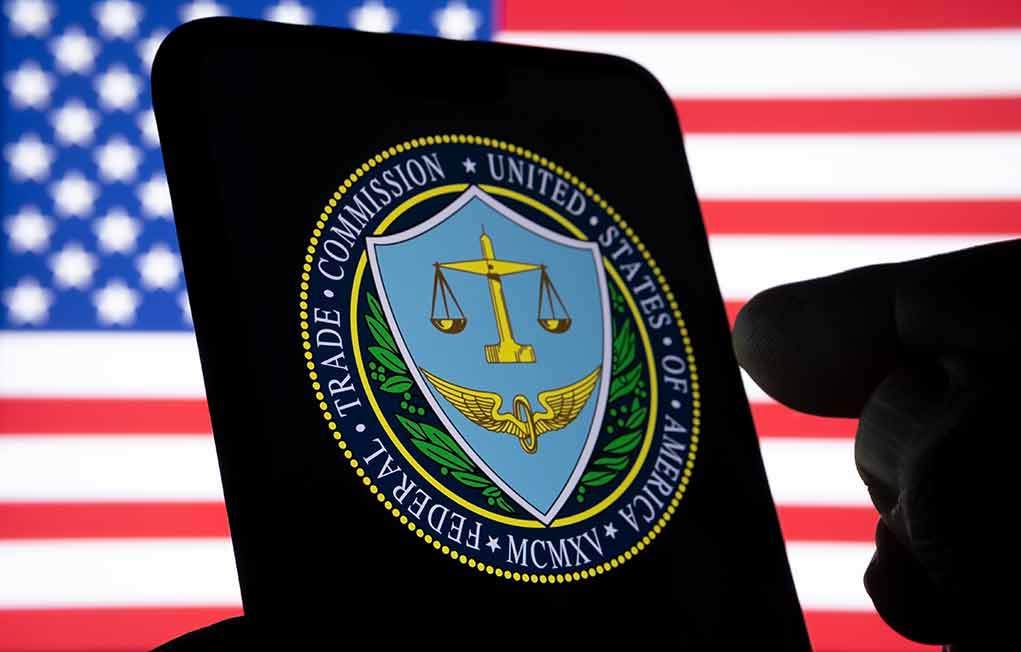
Blackstone Legal faces permanent industry ban and millions in penalties after the FTC cracked down on their “phantom debt” scheme that illegally extracted over $8 million from innocent consumers through threats and harassment.
Key Takeaways
- The FTC has permanently banned Blackstone Legal and its owners from the debt collection industry for coercing consumers into paying debts they never owed.
- Blackstone’s illegal tactics included false threats of lawsuits, credit damage, and wage garnishment that extracted millions from victims.
- A monetary judgment of $8,254,368 has been issued against the company, partially suspended based on the defendants’ financial condition.
- The court order requires destruction of all consumer data collected during the scheme and imposes a 20-year compliance obligation.
- The FTC’s action is part of an ongoing campaign to protect consumers from deceptive debt collection practices.
FTC Takes Decisive Action Against Deceptive Debt Collectors
The Federal Trade Commission has secured a decisive victory against predatory debt collection practices with a permanent industry ban against Blackstone Legal and its owners. Filed in the U.S. District Court for the Central District of California, the FTC’s action stems from the company’s aggressive scheme of collecting “phantom debts” – financial obligations that consumers never actually owed. The commission’s investigation revealed a sophisticated operation that employed deception, harassment, and intimidation to extract millions of dollars from American consumers already struggling in Biden’s economy.
“This operation collected on false debt and harassed consumers with fake threats of lawsuits and damaged credit if they refused to pay,” said Christopher Mufarrige from the FTC.
The FTC initially charged Blackstone Legal in February 2025 after uncovering evidence of systematic violations of multiple federal laws, including the FTC Act, the Fair Debt Collection Practices Act (FDCPA), Regulation F, the Gramm-Leach-Bliley Act (GLBA), and the FTC’s Impersonation Rule. The case represents one of the most egregious examples of financial fraud targeting everyday Americans that the commission has prosecuted during President Trump’s administration.
Phantom Debt Scheme Exposed
According to court documents, Blackstone Legal employed particularly underhanded tactics to intimidate consumers into paying debts they never owed. The company routinely threatened victims with imminent arrest, legal action, credit score destruction, and wage garnishment if they refused to pay. Making matters worse, the operation frequently impersonated legitimate lenders and used fictitious business names to create an appearance of authority and legitimacy that confused and frightened consumers into compliance.
“On April 30, 2025, the FTC filed an amended complaint and final order in the U.S. District Court for the Northern District of Georgia against a debt collection company in connection with allegations that the company engaged in deception and coercion to pressure consumers into paying debts they did not owe, in violation of the FTC Act, the Fair Debt Collection Practices Act (FDCPA), Regulation F, the Gramm-Leach-Bliley Act (GLBA), and the FTC’s Impersonation Rule,” stated the FTC.
Court records reveal that before being shut down by a temporary restraining order in November 2024, the operation had successfully extracted over $8.2 million from consumers across the country. The FTC’s swift action established a receivership to manage the defendants’ assets and halt further victimization while the case proceeded through the legal system, protecting countless additional Americans from falling prey to the scam.
Severe Penalties and Permanent Industry Ban
The FTC’s stipulated final order, approved with a 3-0 vote, imposes severe consequences on Blackstone Legal and its owners. Most significantly, all defendants are permanently banned from participating in debt collection or brokering activities of any kind. This lifetime industry ban represents the commission’s determination to remove bad actors from the financial services sector entirely rather than merely imposing fines that might be considered a cost of doing business.
“Last year, the Federal Trade Commission (FTC) filed suit in the U.S. District Court for the Northern District of Georgia, alleging Global Circulation, Inc. (GCI) and its owner, Kenneth Redon III, violated the FTC Act, Fair Debt Collection Practices Act and its associated Regulation F, § 521 of the Gramm-Leach-Bliley Act, and the FTC’s Trade Regulation Rule on Impersonation of Government and Businesses,” reported the Federal Trade Commission (FTC).
The judgment includes an $8,254,368 monetary penalty, though payment is partially suspended due to the defendants’ claimed inability to pay. However, the FTC built a crucial safeguard into the settlement: if the defendants are found to have misrepresented their financial status, the full judgment immediately becomes due. Additionally, the order mandates the destruction of all consumer data obtained during the scheme and imposes a strict 20-year compliance and recordkeeping obligation to prevent any future attempts to resume operations.
Protecting American Consumers
This enforcement action reflects the FTC’s ongoing commitment to protecting American consumers from predatory financial practices under President Trump’s administration. The case was prosecuted by FTC staff attorneys Quinn Martin and Jason Sanders, who built a comprehensive case that resulted in the complete dismantling of the fraudulent operation. The commission continues to remind consumers to report any suspected fraud or scams through its dedicated reporting portal at ReportFraud.ftc.gov.
For American consumers, especially those struggling with legitimate debt issues, the case serves as both a warning about potential scams and reassurance that government agencies are actively working to eliminate predatory practices. The permanent ban on Blackstone Legal sends a clear message to other debt collectors that violations of consumer protection laws will result in severe consequences, not mere slaps on the wrist that can be absorbed as business expenses.

